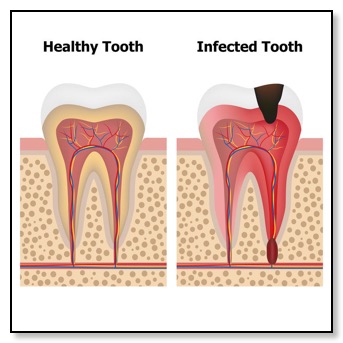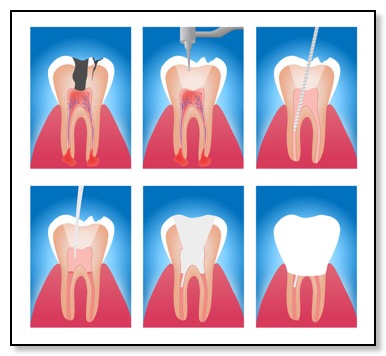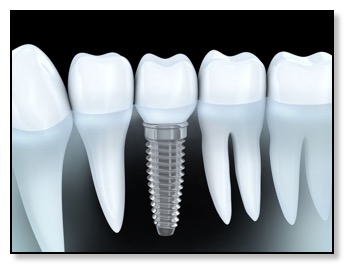Root Canal Therapy
I have met many patients who have been recommended root canal procedures and, as a result, have become very worried. This is often because the patients do not understand what a root canal procedure is, and many associates the procedure with pain, discomfort, and cost. This article will provide you with in-depth information about the procedure and enable you to make well-informed decisions when it comes to your dental health.
What are Root Canals & Why Do They Need Treatment?

Sometimes, the pulp becomes infected or inflamed due to deep tooth decay, shock, repeated dental procedures on the tooth, fractures, cracks, or poorly made crowns. If the infection is not treated, bacteria multiply in the pulp cavity and turn the pulp into an abscess. The infected root canal cavity causes pain to the person as it puts pressure on the nerve endings. This may also cause more severe dental issues such as infected adjacent teeth, bone loss, fever, etc.
In such cases, the root canal may need to be thoroughly cleaned out to remove the infected pulp, and your dentist may prescribe a root canal procedure.
What are Root Canals & How are They Done?

Once the root canals are cleaned out and sealed up, a dental crown is used to protect the exposed area of the tooth from future infection of the cavities. Dr. Tsai will also place a stainless steel post inside the tooth to improve strength and structural integrity. Since the tooth no longer gets blood supply, it tends to become brittle after six months to a year. The crown and post provide structural integrity and protect the brittle tooth from chipping or breaking apart. In general, the dowel or post is used on biting teeth where pressure endured by the teeth is greatest. However, there are certain situations where Dr. Tsai will use a post on anterior teeth as well to ensure longevity.
Can There be Complications After a Root Canal Procedure?

Firstly, as mentioned above, due to the removal of blood vessels, the tooth on which a root canal procedure has been done no longer gets blood supply. Due to this, the tooth tends to become brittle after six months to a year and can easily fracture. Once the root canal has been completed, the standard of care is to add a metal post inside the empty roots and place a full coverage dental crown over the tooth. Having the post and the crown work together to provide structural integrity helps ensure the tooth will last many years.
Secondly, since the tooth is still a natural tooth, it can be affected by problems like reoccurring decay, bone loss, fractures, etc. To a certain extent, having a root canal can sometimes serve as a temporary solution only. When the tooth is too decayed or the infection has eroded too much tooth structure, patients are better off extracting the tooth and placing a dental implant.
Alternative Treatment to Root Canals?

Another four or so months and she can place the abutment and crown (the final step). A dental implant looks and functions exactly like a natural tooth. Since the implant is not affected by the problems pointed out above, this may be a viable alternative to a root canal procedure + crowning.
If you have any lingering tooth pain, discomfort when you bite down, or if your tooth hurts from hot or cold, you may need a root canal treatment. If you are still working through complications related to a root canal treatment, please give us a call. We can evaluate and determine if the tooth can be saved or if a dental implant may be your best option. If you have any of the symptoms mentioned above, or if you think you need a dental bridge, dental crown, root canal treatment, or any other dental treatment, schedule an appointment with Dr. Tsai or give us a call.
Have questions about root canal therapy? email or call us: (650)-583-5880
📩
Send us Email
📅
Request Appointment